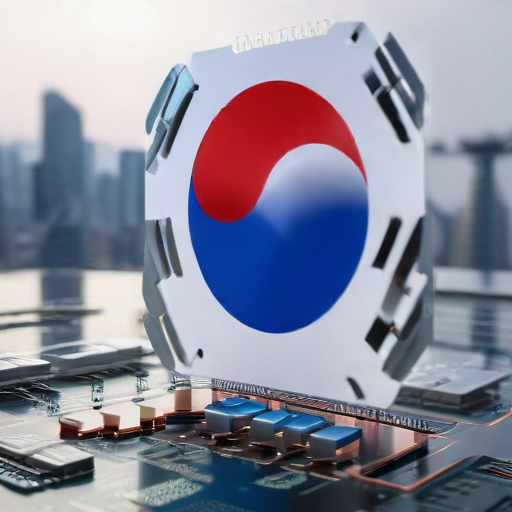Bank of America analysts have highlighted South Korea as one of the few countries experiencing a productivity rise attributed to artificial intelligence (AI). However, they caution that ongoing U.S.-China tensions over semiconductor manufacturing could pose significant challenges to this growth.
The semiconductor sector plays a crucial role in South Korea’s economy, representing 17% of the nation’s exports. According to the report, the country has emerged as a substantial beneficiary of the AI boom, with a remarkable year-over-year increase in exports—over 50%. The analysts project that South Korea’s extensive investments in AI research and development, coupled with a rising number of AI-related patents, will bolster its leadership in AI adoption moving forward.
Nonetheless, the potential for escalating geopolitical disputes may significantly impact the supply chain of semiconductors. The report notes that, despite South Korea’s efforts to diversify chip exports away from China, approximately 30% of its chip exports still went to China and Hong Kong in 2023. Additionally, chip exports to the U.S. accounted for a similar percentage.
In the event that geopolitical tensions intensify, particularly if the U.S. applies further trade restrictions on advanced or AI-related chip exports to China, South Korea could face serious setbacks in its memory semiconductor market. South Korean manufacturers are also reliant on China for key components and equipment necessary for chip production. Thus, any supply chain disruptions could hinder the ability of these firms, including industry giants like Samsung and SK Hynix, to obtain essential production tools.
Moreover, the U.S. has reportedly asked South Korea to limit exports to China of technology and equipment essential for creating memory chips and advanced logic chips. This request is under review due to the potential impact on South Korean enterprises that operate within China. The Biden administration is also contemplating the implementation of an export control measure known as the foreign direct product rule, which would restrict the sale of goods to countries if they incorporate a set percentage of U.S. intellectual property.
In summary, while South Korea is poised for growth in AI and semiconductor production, external geopolitical challenges may hinder that progress. The country’s ability to navigate these tensions will be crucial as it seeks to maintain its significance in the global tech landscape.
The optimism surrounding South Korea’s investments in AI presents an opportunity for the country to emerge as a leader in technological innovation, showing resilience in the face of global challenges. With strategic planning and diversification, South Korea can continue to thrive even amidst geopolitical uncertainties.
